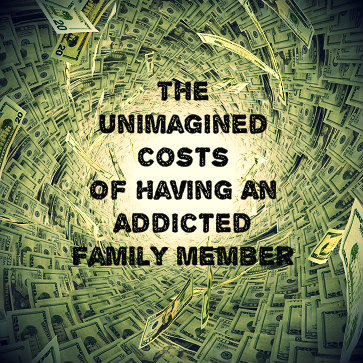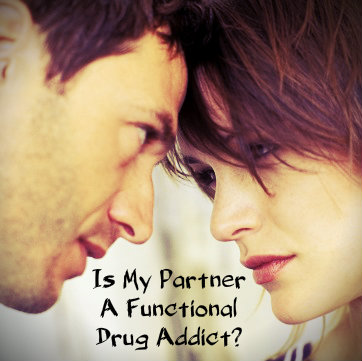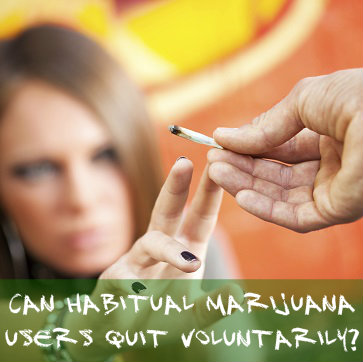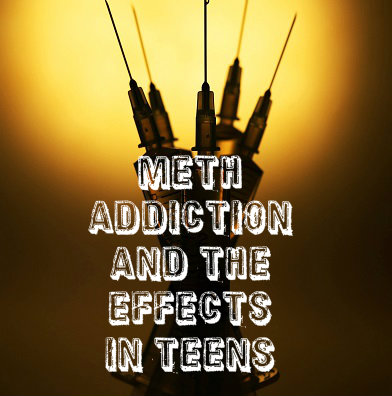Addiction is a tricky illness, especially when it comes to behavioral addictions. Chemical addictions are straightforward. A substance—alcohol or drugs—makes chemical changes to your brain and makes it difficult for you to stop using. Clear signs of dependence emerge, such as withdrawal symptoms and tolerance. But, where do you draw the line when it feels like you might be obsessively engaging in an activity? Are you addicted? And if so, how do you stop?
What Is Social Media Addiction?
 Being addicted to social media is not a condition recognized officially by the medical and addiction communities. However, there is a whole class of recognized addictive disorders called behavioral or process addictions. These refer to the compulsive and obsessive need to engage in a particular activity or behavior. It could be gambling, having sex, shopping, eating or even using social media.
Being addicted to social media is not a condition recognized officially by the medical and addiction communities. However, there is a whole class of recognized addictive disorders called behavioral or process addictions. These refer to the compulsive and obsessive need to engage in a particular activity or behavior. It could be gambling, having sex, shopping, eating or even using social media.
In our hyper-connected world in which we are all glued to devices, becoming obsessive about using them is not unusual. Social media sites like Facebook, Twitter, and Instagram allow us to keep in touch with other people, but when you keep turning to them with a burning compulsion, you may be developing a problem.
How Can I Tell If I Have A Problem With Social Media?
The line between responsible, normal use of social media and addictive use can be tricky to distinguish. It is especially difficult to see that line in your own use; it is easier to see it in others. For this reason, one sure sign that you need to rethink your usage is if someone points out your obsession. If a concerned loved one tells you that you may be turning to Facebook too often, you should listen and resist the urge to become defensive.
Another clear sign of a behavioral addiction is if you engage in the activity to feel better. If you get an emotional high or a feeling of stress relief from using social media, you are becoming dependent on it. Another sign is the experience of withdrawal. Withdrawal symptoms in chemical addictions are clear-cut and to be expected, but you can also experience them with behavioral addictions. Take notice if you feel anxious, depressed, or antsy when you can’t get to your phone or tablet to update your status.
If you find that your compulsive attachment to social media interferes with other aspects of your life, you need to reevaluate your usage. Maybe you are getting in trouble at work because you can’t stay off your favorite sites and you don’t get your work done. Maybe your relationships within your family are deteriorating because you spend too much time online. These are signs that you have a problem. Finally, if you recognize that you are online too often, try to cut back and find that you can’t, you may be addicted.
How Can I Get Help For Social Media Addiction?
As with any addiction, professional help and support of loved ones are the keys to recovery. As more people face the problem of overusing technology, more professionals are available to help you cope and come clean. Find a therapist or counselor who has experience working with people who have behavioral addictions. Also consider finding a support group that can help you deal with your problem by relating to others in the same situation. Enlist the support of your loved ones to help you get through this, and you will be successful.
Read More About Why Internet Addicts Are More Likely To Abuse Drugs And Alcohol
What words can describe how a parent feels watching their child attempt to cover life’s pain with substances? When a child has a full-blown addiction, there can be significant financial costs on top of the emotional ones. One book which attempts to relate the family pain of substance abuse also talks about the strain placed on the family budget when addiction takes over.
An Addict’s Desperate And Drastic Steps
David Sheff’s Beautiful Boy recounts his son’s downward spiral with tales of missing credit cards, missing household items, missing checks and even missing coins from a sibling’s piggy bank. Addicts need their substance and they will do nearly anything to stay supplied. In this case, when the child left home and contacted mom and dad asking for more money, the desperate parents sent it.
If the addicted family member is a spouse, the financial dangers can become even greater. Joint bank accounts need to be watched carefully. The person may try to open a new line of credit in order to lay their hands on ready cash. In some cases, addicts have been known to frequent payday advance lending businesses.
What The Family Of An Addict Can Change
When this is the situation, the sober partner may need to take some more drastic steps. Names may need to be changed on bank accounts to protect savings. In extreme cases it may be necessary to establish a trust to safeguard the home and other major assets. The addiction can cost families inordinate amounts of capital, even when someone is maintaining vigilance. The drain can be devastating when fear is the only decision-maker.
When the child or spouse is at last ready to make a change, the costs for rehabilitation are not miniscule. As Sheff points out, money needs to be intentionally protected and then well-directed. Simply handing out money to a child not at home and on drugs isn’t always the best decision. However, investing in recovery is worth every penny.
Parents and spouses will need to make some very tough decisions about where to draw the financial line because addiction is costly. Often it will be helpful to talk with a mental health professional when making those kinds of decisions. They can offer dispassionate insight into whether it’s time for tough love or something else. When you’re in the middle of the situation, the overwhelming emotions can make it hard to reason wisely.
Finding Guidance When Dealing With The Addiction Of A Loved One
A biographical account cannot fully express what a family goes through when a member becomes addicted to alcohol or drugs, but it can lay out some of the potential landmines. Parents of children with addiction can learn from the mistakes of others. Get help when deciding how to support your loved one dependent on substances. There is a right time to close the billfold and a right time to open it again.
Read More To Find Out If You’re Enabling The Addict In Your Life And Break Free From The Cycle Of Broken Promises!
23 Dec 2013
Is Marijuana Really Addictive?
Many people take marijuana use with a grain of salt. It’s not a hard drug, right? It’s legal in two states now, so how bad could it be for you? If you have a loved one, maybe a teenager, who is smoking pot, you may wonder if he is at risk of becoming addicted. You should be worried, but not for the reasons you might think.
Marijuana Addiction
 Most people who use marijuana do so recreationally and without developing an addiction. When compared to other drugs that are highly addictive, like heroin, meth or cocaine, marijuana seems very innocent. Those harder drugs can result in dependence in a user very quickly. What makes some drugs so addictive is that the body becomes physically dependent upon them. A heroin addict needs another hit just to feel normal again, to stop the pain, the anxiety, the irritability and the shaking that come with withdrawal.
Most people who use marijuana do so recreationally and without developing an addiction. When compared to other drugs that are highly addictive, like heroin, meth or cocaine, marijuana seems very innocent. Those harder drugs can result in dependence in a user very quickly. What makes some drugs so addictive is that the body becomes physically dependent upon them. A heroin addict needs another hit just to feel normal again, to stop the pain, the anxiety, the irritability and the shaking that come with withdrawal.
Marijuana does produce some light withdrawal symptoms. A regular user might start to feel a little irritable and experience an elevated heart rate when he has stopped using for a day or two. These symptoms are much milder than those seen with harder drugs, though. So is marijuana addictive? The answer is yes. Addiction is more complicated than physical dependence.
It is possible that your teen will become addicted to marijuana if he uses it regularly and frequently. If he begins to smoke pot in a way that is compulsive, if he can’t seem to stop, he needs it to relax, or he needs it to get going in the morning and to sleep at night, these are all signs of an addiction, whether he is physically dependent on the drug or not.
Marijuana Risks
Even if your teen does not become addicted and sticks to casual, recreational use of marijuana, there are still risks. When he smokes pot, it makes his heart rate go up, it makes him disoriented, it makes him uncoordinated and it may make him anxious or paranoid. Marijuana is a mind-altering substance. If he tries to do anything while high, such as drive a car, or even just cross a street, he could cause an accident.
Smoking pot also carries many of the same risks as smoking cigarettes. Substances in the smoke can cause cancer and lung disease, especially with regular use. Long-term marijuana use has been shown to cause abnormalities in the brain and the development of psychiatric problems. Another problem with smoking pot is that it tends to make people lazy and apathetic. This is not true for everyone, but someone who is high all of the time is not likely to get much done.
Parents Talking With Their Teens About Marijuana Use And Its Risks
So although marijuana can in fact be addictive, it is important to remember that it is not in the same class as harder drugs. There are different ways to become addicted to a substance or a behavior. Addiction to marijuana is often more of a behavioral habit than a physical dependence.
Aside from addiction, there are many other reasons to be concerned if your teen is smoking pot. Sit your teen down for a talk about the dangers and risks associated with using this drug. Explain the possibility of addiction and the physical damage it can do to his body. With information, you empower your teen to make the best choices.
Read More About How Marijuana Use Is Linked To Mental Disorders
Everyone has heard of the functional alcoholic. This is the person who drinks excessively, who needs to drink every day to quell withdrawal symptoms, but who can also go to work, maintain relationships, and keep a home life that is fairly steady and balanced. Is it also possible to be a functional drug user? Is there a difference between a functional drug user and a drug addict? And how can you tell what is going on with your spouse?
The Functional Drug User
 It is possible, at least for a time, for a drug user to be high functioning. If your spouse or partner uses drugs but still has a job, still meets your needs at home, still keeps up with responsibilities, and rarely experiences negative consequences related to drug use, your partner is functioning. Some of the most addictive drugs are difficult to use in such a way that functioning is still possible. For instance, heroin users are rarely functioning on any level other than a desire to get the next fix.
It is possible, at least for a time, for a drug user to be high functioning. If your spouse or partner uses drugs but still has a job, still meets your needs at home, still keeps up with responsibilities, and rarely experiences negative consequences related to drug use, your partner is functioning. Some of the most addictive drugs are difficult to use in such a way that functioning is still possible. For instance, heroin users are rarely functioning on any level other than a desire to get the next fix.
High-functioning drug users are more likely to be those that use marijuana, cocaine, prescription painkillers or amphetamines, or methamphetamine. If your partner uses drugs to get going in the morning, to relax after work, to cope with her emotions, particularly negative ones, or to get a boost of energy, she has a problem whether she is functioning or not.
Functioning And Addicted?
A functional drug user may not be an addict right away. If the drug use has not yet become compulsive or if your partner has not yet started to experience withdrawal symptoms, she may not yet be addicted. It is important to understand, however, that she is headed down a dangerous path.
If she continues to use drugs motivated by emotional reasons or the need to function during the day, she is headed down the path to addiction. Addicts can be high-functioning, and you may be watching your loved one gradually slide from casual drug use into addiction without noticing. The fact that she can function normally makes this transition difficult to catch.
Getting Help For Your High-Functioning Addict
It is very important for you and your partner to discuss her drug use. Whether you think she has become addicted or is still a casual user, she needs to stop using. Abusing drugs always carries the risk of addiction, no matter what her intentions are or how well she is functioning. No matter how strong-willed she claims to be about her drug use, it is possible that she will become dependent on her drug of choice.
Getting a functioning user to admit to having a problem is difficult. Denial runs deep in high-functioning addicts because they can always point to their lack of negative consequences to prove they don’t have a problem. If she lost her job, got in trouble with the law or was going broke feeding her habit, it would be easier to admit to having a problem.
Your job is to convince her that she is headed down a dangerous road, and that she may end up facing serious consequences if she keeps going; point to her motivations for using. Does she use drugs to cope with emotions she doesn’t want to recognize? Does she use because facing the day without drugs seems impossible? Does she need drugs to relax or to cope with stress? These are all the motivations of drug abusers and addicts. Help your partner to understand what she is doing and the possible harm it could cause in the long run.
Read About Functioning Addicts In The Media
Self-reporting of drug use is an approach that uses interviews, questionnaires or surveys to determine whether a person uses drugs, has previously used drugs or currently has drugs in his or her system. This method differs from objective urine testing, a universally accepted approach that relies on chemical measurements to detect the presence of drugs. In a study published in October 2013 in the journal Addictive Behaviors, a team of researchers from several U.S. institutions compared the accuracy of self-reported drug use by teenagers and young adults in drug treatment to the accuracy of urine testing. The researchers found that individuals in these age groups tend to self-report their level of drug use with relatively consistent truthfulness.
Self-Reporting Drug Use
Drug treatment professionals and researchers use self-reporting to gather a range of statistics from small and large populations of drug users. Examples of the information commonly acquired include the absence or presence of drug use, frequency of drug use, larger patterns of drug use and the presence of underlying factors that may contribute to drug use frequency or drug use patterns in some way. Depending on the scope of an interview, survey or questionnaire, self-reporting may provide data on short-term drug usage, annual drug usage or lifetime drug usage. Some professionals and researchers use self-reporting to answer relatively simple questions about drug usage, while others use the technique in connection with complex formulas designed to gather very specific, detailed information from participants.
Urine Drug Testing
Urine drug testing is a specific form of urinalysis designed to detect the presence of commonly abused substances such as opioid narcotics, marijuana and other forms of cannabis, cocaine, amphetamine, methamphetamine and phencyclidine (PCP). In some cases, urine testing directly detects the presence of these substances; in other cases, it detects the breakdown products that these substances form after entering the bloodstream. A urine drug test only tells the person conducting the test whether an individual has used a particular substance within a narrow time span of roughly one to three days. It does not provide information about such factors as the method of drug use, the specific moment of drug use or the amount of drugs taken at a given time. Testers typically confirm the results of a urine drug test with a follow-up testing procedure designed to guarantee the final accuracy of the rendered results.
Accuracy Of Self-Reporting On Drug Use
Because urine drug testing provides an objective measurement of drug use, experts in the field commonly view this form of testing as the standard tool for detecting the presence of drugs in a person’s system. However, in certain situations, it is not necessarily convenient or practical to perform urine testing. In addition, the proper interpretation of testing results is sometimes relatively complex and time-consuming. For these reasons, doctors and other professionals sometimes have a real need for other ways of obtaining the information they require.
In the study published in Addictive Behaviors, researchers from three U.S. universities sought to determine if self-reporting of drug use can act as a reliable substitute for urine drug testing. They explored this question with the help of 152 teenagers and young adults enrolled in programs primarily geared toward the treatment of addictions to opioid narcotic drugs. Some of the participants received short-term (two-week) treatment with group/individual counseling and a standard combination of two opioid addiction medications called buprenorphine and naloxone. Others received longer-term (12-week) treatment with counseling and the combination of buprenorphine and naloxone. Self-reports and urine testing results were obtained from each group at regular intervals. Each participant received a small financial reward as an incentive to keep participating in the study.
After completing the study’s main phase, the researchers concluded that the teens and young adult participants provided self-reported information on drug use that generally matched up well with the objective measurements provided by urine drug testing. Generally speaking, these findings were unaffected by factors such as the amount of money received for participation and the specific nature of each individual’s drug addiction. However, the study’s authors also concluded that teens and young adults who received longer-term counseling and medication treatment had a greater tendency to under-report their drug use than teens and young adults who received shorter forms of treatment. Specifically, these individuals downplayed their involvement in both opioid and cocaine use.
So Is Self-Reporting Accurate Enough For Solo Drug Testing Use?
The authors of the study published in Addictive Behaviors believe that their findings demonstrate that teens and young adults in treatment commonly self-report their drug use accurately enough to give doctors a potential secondary alternative to urine drug testing. However, they also believe that the level of accuracy is not high enough to do away with the need for urine testing, especially in teens and young adults participating in relatively long-term treatment programs. And Save Your Life Or The Life Of A Loved One
Get Drug Rehab Counseling Help Now And Save Your Life Or The Life Of A Loved One!
27 Nov 2013
Can Habitual Marijuana Users Quit Voluntarily?
 Cannabis is a THC-containing plant species known for its ability to produce strong mental and physical alterations when smoked or ingested. Substantial numbers of cannabis users develop symptoms of drug addiction, especially when they take the drug daily or start using the drug early in life. In a study published in October 2013 in the journal Drug and Alcohol Dependence, researchers from two U.S. universities examined the considerations that affect a habitual cannabis user’s ability to voluntarily stop his or her drug intake. These researchers identified three specific factors—withdrawal symptoms, peer pressure and negative mental states—that play prominent roles in the success or failure of self-initiated cannabis cessation attempts.
Cannabis is a THC-containing plant species known for its ability to produce strong mental and physical alterations when smoked or ingested. Substantial numbers of cannabis users develop symptoms of drug addiction, especially when they take the drug daily or start using the drug early in life. In a study published in October 2013 in the journal Drug and Alcohol Dependence, researchers from two U.S. universities examined the considerations that affect a habitual cannabis user’s ability to voluntarily stop his or her drug intake. These researchers identified three specific factors—withdrawal symptoms, peer pressure and negative mental states—that play prominent roles in the success or failure of self-initiated cannabis cessation attempts.
Cannabis gets its name from a plant species called Cannabis sativa L., which has two subtypes, known as Cannabis sativa and Cannabis indica. While C. sativa and C. indica have somewhat differing effects on the human body, they both derive their main mental and physical impact from the presence of a chemical compound called tetrahydrocannabinol (THC). A number of compounds related to THC also contribute to cannabis’s mind- and body-altering properties. Most people are passingly familiar with a form of cannabis called marijuana, which is made from dried, unconcentrated C. sativa or C. indica leaves, flowers and stems. Less commonly available cannabis products include concentrated substances called hashish and hashish oil.
Cannabis Abuse And Addiction
On a federal level, cannabis products are illegal in the U.S. in any setting. For this reason, any form of marijuana, hashish or hashish oil use can reasonably be construed as drug abuse. However, from a medical perspective, cannabis abuse occurs in people whose non-addicted cannabis intake substantially interferes with the ability to participate in everyday life. Cannabis addiction occurs in people who become chemically dependent on the effects of THC, then go on to develop behavioral patterns strongly centered on obtaining and using cannabis. According to standards set by the American Psychiatric Association in 2013, cannabis abusers and cannabis addicts have a single condition called cannabis use disorder.
Roughly nine out of every 100 marijuana users will develop an addiction to the drug, the National Institute on Drug Abuse reports. This rate nearly doubles among users who begin their intake of the drug during or before their teenage years. In addition, long-term, daily marijuana users have addiction rates that fall between 25 percent and 50 percent. Anyone addicted to marijuana, hashish or hashish oil can develop cannabis withdrawal when they rapidly reduce or discontinue their drug intake.
Cannabis Withdrawal Symptoms
- Recurring cannabis cravings
- Heightened anxiety levels
- Decline in appetite
- Trouble sleeping
- Unusually agitated or irritated disposition
Factors That Affect Voluntary Cessation From Marijuana Use
In the study published in Drug and Alcohol Dependence, researchers from the University of Houston and Louisiana State University looked at the various factors that can increase or decrease a person’s ability to voluntarily stop smoking or ingesting cannabis. This assessment involved a group of 30 adult cannabis users attempting to halt their drug intake; the vast majority of these individuals (84 percent) had clear symptoms of cannabis use disorder. During each day of the two-week study, all of these participants gave regular reports of their positive and negative mental states, level of cannabis withdrawal symptoms, level of cannabis use among their peer groups and conscious reasons for failing to halt cannabis use or returning to cannabis use after beginning cessation efforts.
Effects Of Quitting Marijuana Smoking
After reviewing the reports submitted by the study participants, the researchers found that people attempting to voluntarily stop using cannabis commonly experience a spike in their level of withdrawal symptoms, as well as a spike in their experience of unusually negative states of mind. The researchers also found that people going through voluntary cessation while associating with cannabis-using peers have substantially more exposure to the drug than people who typically used the drug on their own in the past. In combination, these three factors (prominent withdrawal symptoms, a negative mental outlook and peer-related exposure to cannabis) present strong obstacles to successful self-initiated cessation efforts among cannabis users.
Why Marijuana Smokers Continue Using
When asked why they continued or returned to cannabis use, the participants in the study published in Drug and Alcohol Dependence listed a desire to avoid negative mental states as their main conscious reason. The authors of the study note that most people attempting to voluntarily stop using cannabis try to support their efforts by modifying their behavioral patterns and staying away from the drug, not by altering their cannabis-related beliefs or thought processes.
Are Marijuana Users Bad At Tracking How Much They Smoke? Find Out In This Fascinating And Informative Post
Cannabis is the umbrella term for the mind-altering products marijuana, hashish and hashish oil, which come from the cannabis group of plant species. All of these products create substantial risks for physical dependence and addiction when used regularly for relatively extended amounts of time. Cannabis use also comes with a known risk for psychosis and certain other mental health problems. In a study published in August 2013 in the journal Addiction, a team of Dutch researchers looked at the relative risks for mental illness in dependent/addicted marijuana users and users unaffected by dependence/addiction. The researchers concluded that the mental illness risks in these populations differ in substantial ways.
What Exactly Is Cannabis?
 Marijuana comes from dried, non-concentrated parts of Cannabis plants such as the leaves, stems and flowers. Hashish and hashish oil, on the other hand, come from the purposeful concentration of these plant parts. All three of these cannabis-based products contain the same active ingredient, known informally as THC and formally as tetrahydrocannabinol. THC triggers changes in brain function that create the classic effects of cannabis intoxication, including altered thinking and sensory perception, a rise in pleasurable feelings, appetite increases, reduced clarity in several major areas of consciousness, and a reduced ability to move the body’s muscles in an efficient, controlled manner.
Marijuana comes from dried, non-concentrated parts of Cannabis plants such as the leaves, stems and flowers. Hashish and hashish oil, on the other hand, come from the purposeful concentration of these plant parts. All three of these cannabis-based products contain the same active ingredient, known informally as THC and formally as tetrahydrocannabinol. THC triggers changes in brain function that create the classic effects of cannabis intoxication, including altered thinking and sensory perception, a rise in pleasurable feelings, appetite increases, reduced clarity in several major areas of consciousness, and a reduced ability to move the body’s muscles in an efficient, controlled manner.
Marijuana’s Dependence And Addiction
Despite its reputation as a relatively harmless, “natural” substance, THC can make substantial alterations in a person’s long-term brain function when used repeatedly or habitually over time. These changes in function can eventually make the brain “see” the presence of THC as a chemical norm rather than a rare or occasional event. When this situation arises, the affected individual has what’s known as a physical dependence on the effects of cannabis/THC. By itself, physical dependence on a substance does not necessarily constitute a dangerous or harmful situation. However, when combined with persistent drug-seeking behaviors and other disruptive or dysfunctional actions, dependence establishes the necessary groundwork for the onset of a drug addiction.
Mental Health Risks Of Marijuana Use
While under the temporary influence of cannabis products, users commonly experience short-term symptoms that closely approximate psychosis, an altered mental state (classically associated with schizophrenia and schizophrenia-related illnesses) that primarily features delusional thought processes and/or some sort of sensory hallucination. In some cases, regular users develop a more extended form of psychosis that continues as long as a pattern of cannabis intake continues. In addition, current evidence strongly indicates that habitual cannabis users have increased long-term chances of developing diagnosable cases of schizophrenia or depression that continue to exert their effects even when a pattern of cannabis intake stops.
In the study published in Addiction, researchers from the University of Amsterdam and the Netherlands Institute of Mental Health and Addiction sought to determine if people physically dependent on cannabis have higher risks for developing mental health issues than cannabis users unaffected by dependence. They made this determination by tracking the mental health diagnoses of 252 young adults affected by cannabis dependence, as well as the diagnoses of 269 young adult, non-dependent cannabis users. For comparison’s sake, they also tracked the mental health diagnoses of over 1,000 non-cannabis-using young adults. The researchers did not attempt to differentiate issues of cannabis dependence from issues of cannabis addiction.
Effects On Mental Illness In Dependent vs. Non-Dependent Marijuana Users
After reviewing the gathered data, the researchers found that both dependent and non-dependent cannabis users have a higher rate of mental illness than people who don’t use cannabis at all. They also found that dependent and non-dependent cannabis users are similar in most ways and share comparable patterns of general cannabis use, patterns of other forms of substance use and histories of problematic or traumatic childhoods. While dependent cannabis users have a higher overall rate of mental illness than non-dependent users, non-dependent users have higher rates than dependent users for illnesses called externalizing disorders, which include attention-deficit/hyperactivity disorder (ADHD), oppositional defiant disorder and conduct disorder. Conversely, dependent users have particularly high rates for illnesses called internalizing disorders, which include mood disorders (depressive and bipolar illness) and a range of conditions referred to together as anxiety disorders.
Most of the difference in the mental illness rates between dependent and non-dependent cannabis users disappeared when the authors of the study published in Addiction took certain secondary factors into account, including the use of other substances and the presence of traumatic or problematic childhoods. However, even with these adjustments, dependent users still have higher illness rates than non-dependent users. Except for the spike in their rates for ADHD, oppositional defiant disorder and conduct disorder, non-dependent cannabis users have mental health profiles that closely resemble the profiles found among people who don’t use cannabis.
11 Nov 2013
Meth Addiction And The Effects In Teens
Fans of the hit crime drama Breaking Bad may have become familiar with the dangers of methamphetamine use. However, as a parent, you may have questions about methamphetamine abuse in teenagers and whether it requires drug rehab treatment. Surveys suggest that 2 to 3.5% of adolescents have used methamphetamines [1]. Also called “speed” or “glass”, it’s a highly addictive stimulant.
How Meth Works
Methamphetamine – or “meth” for short – is a type of amphetamine, a drug that acts on the body’s central nervous system. The drug works by increasing dopamine levels within the brain to very high levels. Dopamine is the brain chemical that’s linked to pleasure, reward, motivation, and also motor function. When dopamine levels skyrocket, as they do during meth use, the user experiences a pleasurable rush that is often compared to euphoria.
While there are several types of amphetamines, meth is generally considered the most potent. The drug can be snorted, injected, or taken orally. Some abusers use a method called parachuting, which involves crushing a pill and then rolling the powder into a piece of tissue or toilet paper. The entire package – tissue and all – is then swallowed, delivering what’s believed to be a stronger, faster high because the pill’s outer protective layer has been destroyed.
 Teen meth addicts will typically use daily or nearly daily. Addiction requiring drug rehab treatment can develop quickly, sometimes within just a few uses. Chronic abuse of the drug leads to tolerance. As one’s tolerance level increases so does the amount of the drug that’s needed in order to achieve the euphoric high.
Teen meth addicts will typically use daily or nearly daily. Addiction requiring drug rehab treatment can develop quickly, sometimes within just a few uses. Chronic abuse of the drug leads to tolerance. As one’s tolerance level increases so does the amount of the drug that’s needed in order to achieve the euphoric high.
Effects Of Meth
Since meth is a stimulant, like cocaine, a teen will experience immediate physical effects, even when the drug is taken in small amounts. Meth users experience increased heart rate and respiration, irregular heartbeat, high body temperature, decreased appetite, inability to sleep, and increased physical activity.
An adolescent with a long-term meth addiction can experience more serious effects. Anxiety, confusion, and extreme weight loss are common. Many develop severe dental problems, such as tooth decay and loss, because the drug reduces output of saliva, which normally protects the mouth, and drug users often have poor dental hygiene.
Teen meth addicts are also at risk because the drug enhances the sex drive. Several studies have found that youth, especially females, who use meth are more likely to engage in risky sexual behaviors [2]. This potentially leads to unsafe sexual practices, including having sex without protection. Research has found a strong association between meth users and sexual risk-taking. A study of adults using meth found they were 1.7 times more likely to have gonorrhea and twice as likely to have chlamydia [3].
Chronic methamphetamine abusers might experience serious psychotic symptoms, including hallucinations, delusions, or paranoia. This can lead to physical problems as well. For instance, a meth user might scratch and gouge at their skin to remove “bugs.” Auditory hallucinations can be particularly dangerous if the addict believes “voices” are commanding him or her to harm others, a symptom that makes drug rehab treatment that much more important.
Meth use in teens can also cause permanent brain damage. Research shows that chronic use causes structural and functional changes to brain areas linked to memory and mood [4, 5]. In addition, brain imaging has shown that meth use changes the dopamine system in a way that reduces verbal learning and motor skills [6]. Using the drug over time also disrupts the body’s normal production of dopamine; as a result, chronic users show severe mood swings.
Signs Of Meth Abuse In Teens
- Euphoric moods (may appear unusually happy)
- Paranoia
- Reduced appetite
- Incessant talking
- Rapid weight loss
- Dilated pupils
- Dry, itchy skin
- Skin sores
- Intense mood swings
- Anxiety, nervousness
- Shaky hands
- Violent or aggressive behavior
- Excessive sweating
Symptoms can become worse as a teen’s meth addiction deepens. For instance, a meth addict often appears undernourished or even sick. He or she may have frequent mood swings, abruptly switching from chatty and friendly one moment to aggressive and hostile the next.
Treatment For Meth Addiction
Due to the serious short-term and long-term health risks, including brain damage and even death, meth addiction in adolescents requires immediate drug rehab treatment. Meth abusers can experience intense withdrawal symptoms, including severe agitation, anxiety, sleeplessness, and strong urges to use. Since withdrawal symptoms can be so powerful, teens should detox in a treatment center where they can be medically monitored.
After the drug is out of the body, your teen will start a treatment plan that will likely have several components based on his or her needs. Currently, there are no approved medications to treat methamphetamine addiction. However, rehab centers have a number of therapies for helping adolescents recover. For example, an addictions specialist may recommend cognitive behavioral therapy. This particular type of therapy helps teens learn more about the factors, such as negative emotions, irrational thoughts, or unhealthy behaviors, that contribute to their drug use. This therapy also teaches them how to deal with those factors in a drug-free way. Contingency management may also be beneficial in a drug treatment program. It provides tangible incentives, such as movie tickets or cash, for drug-free urine samples.
Alternate Therapies For Addiction
Other therapies may help your teen as well. For example, animal-assisted therapy, which involves the use of animals like dogs or horses, can be especially powerful. This treatment approach can help addicted teens reduce anxiety, build self-confidence, and develop trust. Talk with an addiction specialist to learn more about the benefits of animal-assisted therapy.
Family education and counseling will also be essential for guiding your teen through recovery. Educational sessions help parents and family members better understand the nature of addiction. They also show ways to help an addicted teen stay free of drugs. In family counseling, a therapist works with family members to pinpoint and resolve conflicts and communication issues, including those that have played a role in your teen’s decision to use drugs. Family therapy can play an important role in helping your teen avoid a relapse down the road.
Meth Affects The Brain’s Pleasure Center Long After Use
Treating an addiction to meth is challenging, in part, because the brain’s ability to produce dopamine is hampered for up to 6 months or more after drug use stops. As a result, addicts may be unable to experience pleasure. This can make it difficult for them to find enjoyment in even simple activities like spending time with friends, seeing a movie, or relaxing on the beach. This lack of positive emotion can compel many teens to start using again, just so they can feel some form of pleasure.
Yet, despite the challenges, adolescents can fully recover from a methamphetamine addiction. If you suspect or know that your teen is abusing meth, consult a drug rehab treatment as soon as possible – preferably one that is skilled in handling meth abuse and addiction in teens. The staff will work with you to lay out a plan for recovery that gives your teen the best chance for success.
Read More About What Meth Use Can Do To You
References:
[1] http://www.drugabuse.gov/drugs-abuse/methamphetamine
[2] http://www.biomedcentral.com/1471-2431/8/48/abstract
[3] http://www.healio.com/infectious-disease/hiv-aids/news/print/infectious-disease-news/%7B458a3b28-01a8-45ca-af13-dead2d781f8b%7D/methamphetamine-use-increases-risk-of-acquiring-hiv-stds-and-mrsa
[4] http://www.jneurosci.org/content/24/26/6028.long
[5] http://www.ncbi.nlm.nih.gov/pubmed/14706946
[6] http://www.ncbi.nlm.nih.gov/pubmed/11229977



